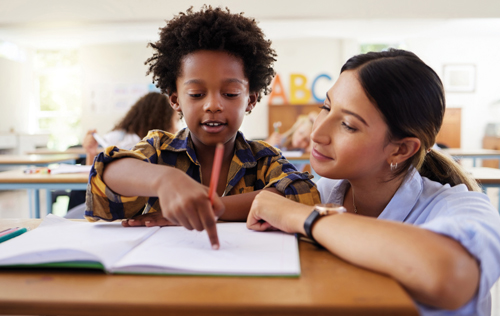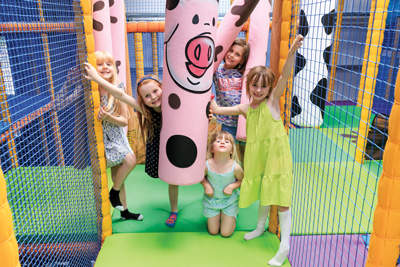
Learning to dance is not just about mastering choreography or moving to the rhythm; it offers numerous physical, emotional and cognitive benefits, making it a valuable and enjoyable activity for children.
Here are some compelling reasons why children should learn to dance:
• Physical fitness
Dance is an excellent form of physical exercise that helps children develop strength, flexibility, and co-ordination. It promotes cardiovascular health, enhances muscle tone, and aids in maintaining a healthy body weight. Regular dancing can instill healthy habits that may last a lifetime.
• Motor skills development
Dancing requires precise movements and control of various body parts. As children learn different dance styles, they improve their fine and gross motor skills, which are essential for everyday activities like writing, playing sports, and self-care.
• Balance and posture
Dance teaches children how to maintain good posture and balance. These skills are not only beneficial for their physical wellbeing but also for their overall self-confidence and how they carry themselves in everyday life.
• Self-expression
Dance provides a creative outlet for children to express their emotions and feelings. It allows them to communicate without words, helping them develop emotional intelligence and self-awareness. Dance can also be very therapeutic and a great way for children to process their emotions.
• Confidence building
As children learn and perform dance routines, they gain self-assurance. The applause and positive feedback they receive boost their self-esteem and help them become more comfortable in social situations.
• Social skills
Dance classes often involve group activities and performances, which encourage teamwork and co-operation. Children learn to work together, support each other, and build friendships through shared experiences.
• Discipline and focus
Dance requires discipline and concentration. Learning complex choreography and striving for improvement instills a strong work ethic in children. They also learn the value of patience and practice as they work towards mastering dance techniques.
• Cultural awareness
Dance is a global language that transcends borders and cultures. By learning different dance styles, children gain an appreciation for the diversity of world cultures and traditions. This exposure can promote tolerance and open-mindedness.
• Stress reduction
Dancing is a joyful and fun activity that can act as a stress reliever. It allows children to forget their worries, even if just for a little while, and experience the joy of movement and music.
• Boosted memory and cognitive skills
Dance involves memorising sequences, steps and patterns, which can improve memory and cognitive function. It challenges the brain and enhances problem-solving abilities and cognitive flexibility.
• Creativity and imagination
Dance encourages creativity and imagination. Children often have the opportunity to choreograph their movements, fostering creativity and critical thinking.
• Lifelong love for the arts
Early exposure to dance can cultivate a lifelong appreciation for the arts. It may inspire children to explore other artistic forms such as music, theatre or visual arts.
• Career opportunities
For some children, dance can become a lifelong passion and even a career. Professional dance opportunities include becoming a dancer, choreographer, dance instructor or even working in the entertainment industry.
So, learning to dance is definitely not just about the physical movements; it’s about developing a holistic set of skills that benefit children in various aspects of their lives. It nurtures their physical health, emotional wellbeing and cognitive development while fostering self-expression, discipline and a lifelong love for the art form. Whether dancing for fun, self-expression or professional aspirations, the benefits of dance make it a valuable addition to any child’s life.



 isten when their siblings say no to them entering their room. Emphasising that we also want to respect other people’s boundaries and giving them the language around boundaries is also really helpful. A boundary might not always sound like the word “no”, it can be “That doesn’t work for me”, or “I don’t like the sound of that,” and when you understand that this is someone conveying their boundaries, not only do they have phrases to listen out for but they have the same phrases they can use themselves.
isten when their siblings say no to them entering their room. Emphasising that we also want to respect other people’s boundaries and giving them the language around boundaries is also really helpful. A boundary might not always sound like the word “no”, it can be “That doesn’t work for me”, or “I don’t like the sound of that,” and when you understand that this is someone conveying their boundaries, not only do they have phrases to listen out for but they have the same phrases they can use themselves.

 For those of us ‘warenting’ our way through life, impossibly striving to be perfect parents AND perfect professionals, remember that success belongs to YOU. It’s yours to define. Own it.
For those of us ‘warenting’ our way through life, impossibly striving to be perfect parents AND perfect professionals, remember that success belongs to YOU. It’s yours to define. Own it.



 It starts the minute you arrive at the venue. The staff and volunteers all have bright eyes and wide grins that actually look genuine, the café or kiosk is serving Christmas-themed cookies and cupcakes and Christmas pudding flavoured ice-cream. The bar is serving large glasses of everything, including delicious mulled wine. The smell of excited anticipation is everywhere.
It starts the minute you arrive at the venue. The staff and volunteers all have bright eyes and wide grins that actually look genuine, the café or kiosk is serving Christmas-themed cookies and cupcakes and Christmas pudding flavoured ice-cream. The bar is serving large glasses of everything, including delicious mulled wine. The smell of excited anticipation is everywhere.










